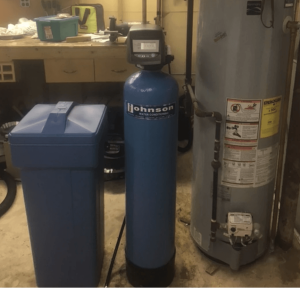Metered vs. Time-Clock Regeneration: Insights from a Pentair Water Softening Contractor in Lake in the Hills, Illinois

If you use a water softener at home, the way it resets and cleans itself can affect the quality of your water every day. When the system regenerates too frequently, it can waste a lot of salt and water. But if it waits too long to do the cleaning cycle, you might start getting hard water in your showers, your laundry, and all your faucets.
This Pentair water softening contractor in Lake in the Hills, Illinois is going to explain the difference between metered and time-clock regeneration below.
What does regeneration do?
Regeneration is the process by which the softener cleans itself. Inside the softener are little resin beads that catch minerals like calcium and magnesium from your water over time. Regeneration rinses them off so the softener can keep working properly.
Pentair softeners are designed to do this automatically. But while some do it on a set schedule, others respond to how much water you use.
Time-clock regeneration
This type of water softener operates on a schedule. For example, it might regenerate every three days, whether you have used a lot of water or barely any.
Let’s say your whole family goes away for the weekend. Even though no one is home, and no water is being used, the softener will still do a full cleaning cycle. That uses water and salt for no reason at all.
Now think about the opposite. Say you have relatives visiting for the week, and everyone is showering and doing laundry every day. This softener will not adjust. If you use too much water too fast, it could run out of softened capacity before the next scheduled cycle.
Metered regeneration
Metered systems are more responsive. Instead of using a clock, they count how much water your household truly goes through.
For example, the Pentair Autotrol 268 with Easy-iQ controller tracks your water use and only regenerates when it needs to. That is how it is always ready to keep up with how much water your family really uses.
With these softeners, you get more consistent water quality, and you are not wasting anything. That is the main reason why many people choose metered systems now, and it’s also why a Pentair water softening contractor in Lake in the Hills, Illinois will recommend it over time-clock models.
Which one saves you more money?
Time-clock systems usually cost less upfront. But because they run on a fixed schedule, they use more salt and water in the long run. A single regeneration can use 25 gallons or more in a day, and that could mean close to 10,000 gallons a year.
Metered softeners use less because they only regenerate when needed. That means less wear on the system and longer life for your parts and appliances.
An experienced Pentair water softening contractor in Lake in the Hills, Illinois can help you figure out how much you could save with a metered model based on your household water usage.
Which system is better for your home?
The best system really depends on your home and the amount of water you use. If you live alone or with one other person and your water habits don’t change much, a time-clock softener can be good enough.
But for most families, a metered system is a better buy. It adjusts to your routine, so you get soft water more consistently without waste.
Looking for a Pentair Water Softening Contractor in Lake in the Hills, Illinois?
If you are searching for a trusted Pentair water softening contractor in Lake in the Hills, Illinois, that can explain your options to you, look no further than Johnson Water Conditioning. We will help you choose the best Pentair softener for your needs to ensure you have dependable soft water from day one. Contact us today to learn how we can help.

 Better Water for
a Better Life
Better Water for
a Better Life
